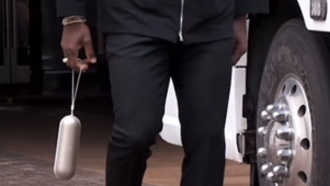The infamous "MySpace angle" is just one of many tricks in cyber-dating. Deceptive profile pictures are rampant on dating sites like Match and apps like Tinder. New research suggests that as a result, men – but not women – will often see a beautiful face as a red flag.
To better understand how men and women navigate the sea of potential partners and attempt to avoid fakes, researchers at the University of Connecticut tried their hand at "catfishing." While regular Internet "catfish" create alluring false identities to trick people into online relationships – often extending their efforts to produce elaborate fraudulent social circles as well – the researchers focused on profile pictures alone.
"Previous research shows that people involved in online dating have some tolerance for deception," said lead researcher Rory McGloin. "They expect that a lot of people are doing it."
Makeup, styling and lighting are some of the most common ways in which people enhance their appearance, so the researchers chose pairs of photos showing the same person with and without these "beautification" effects. They showed the regular and beautified versions of the same faces to 305 heterosexual men and women aged 17 through 36, having the volunteers rate the pictures of the opposite gender.
Each group rated the pictures in terms of both attractiveness and trustworthiness, and then rated how much they wanted to date the person in the photo. The researchers will present their findings at the 65th Annual International Communication Association Conference later this month.
Modern men, it seems, are already well-trained in the art of spotting catfish. They tended to rate the enhanced photos of women as more attractive and more dateable — yet they also found them less trustworthy than their un-beautified counterparts.
"It kind of made us laugh," said McGloin. "Guys were saying, 'Yeah, I recognize that this person probably doesn't look like this, but I don't really care. I still want to date her.' "
Women, on the other hand, rated men as both more dateable and even more trustworthy when their looks were enhanced. McGloin suspects this is because women may think they wouldn't be attracted to a man who isn't trustworthy.
"Females were almost buying into the attractiveness and kind of using that attractiveness as a halo effect," McGloin said.
Since the participants in this experiment did not have to have any social ties with the people in the photos, the results are more likely to reflect their raw emotional reactions, McGloin explained. That also means they could react differently in real-life situations that involve interacting with others.
As for how to avoid going on a date with a fake? McGloin said the data unfortunately "still leaves that a mystery."









